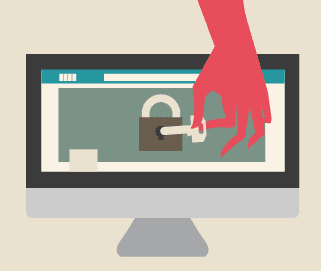Social Media has become ubiquitous in people’s lives. Every day, people instinctively upload private information, inner thoughts, political views, friendships, and other personal material to their networks. It raises the question: can social media affect your legal case?
In the event of a personal injury claim, such as medical malpractice, an automobile accident, or falling on a hazard, this information is both valuable and a potential liability.
Social Media has become so prolific that our potential client intakes include a section dedicated to discussing social media.
Will My Privacy Settings Protect Me?
A typical answer we receive is, “I have the strictest privacy settings.”
Unfortunately, this is almost never adequate.
A person’s privacy settings are only as strong as it’s weakest link.
For instance, if you are tagged in a photo and anyone else in the photo has weaker privacy settings, then you are subject to their weaker settings.
Similarly, if you are tagged in an album, mentioned in a post, or publish a post, you are vulnerable to tagged third party’s security settings.
Additionally, if your family members have weaker privacy settings, then often times your albums are searchable through your loved ones.
This is especially easy if you have a unique last name.
How Can The Defense Use Social Media Against Me?
Keep in mind that once you publish anything on social media, that content no longer belongs to you.
Once someone takes a screenshot of the information, then it’s out of your hands.
If the defense is interested in a particular photo, they may attempt to uncover the original photo, as this will contain the metadata, such as when and where the photo was taken.
The defense can use metadata to infer facts relating to your malpractice claim, car accident, fall down, and other claims.
For this reason, be mindful to not upload anything that can be misunderstood and harmful to your case.
Refrain from publishing facts and circumstances about the incident, whether it’s a car accident, a medical malpractice claim, or falling on a hazard.
If you put something on social media, you can almost expect it to be used in court.
As a rule of thumb, limit the use of social media while a case is in progress.
Also, limit social media after any verdict.
Keep in mind, there is often an appeal process and assume your social media is being monitored during this period as well.
Increasingly, the public is embracing smart watches and fitness trackers.
These trackers contain valuable health information and the defense is taking notice.
As mentioned before, be cognizant of this and refrain from uploading workout data to social media.
Limit Your Presence On Social Media
Be aware of is the power of mutual contacts.
Mutual contacts between experts, lawyers, clients, doctors, and witnesses can create certain perceptions.
The power of mutual connections can play a role in trial.
Recently, a defendant claimed to not know a particular witness in the courtroom.
A quick Facebook search showed they are longtime friends on Facebook.
Be cognizant of organizations and groups you affiliate yourself with on Facebook.
As an indicator, imagine going in for a job interview and having to show your potential employer your social media.
Also, be aware of your presence on all social media platforms, such as Twitter, Instagram, YouTube, Snapchat, and many others.
For these reasons, we recommend not using social media during your case.
If you do use social media, be mindful of what you’re publishing and do so with the strictest security settings allowed.

